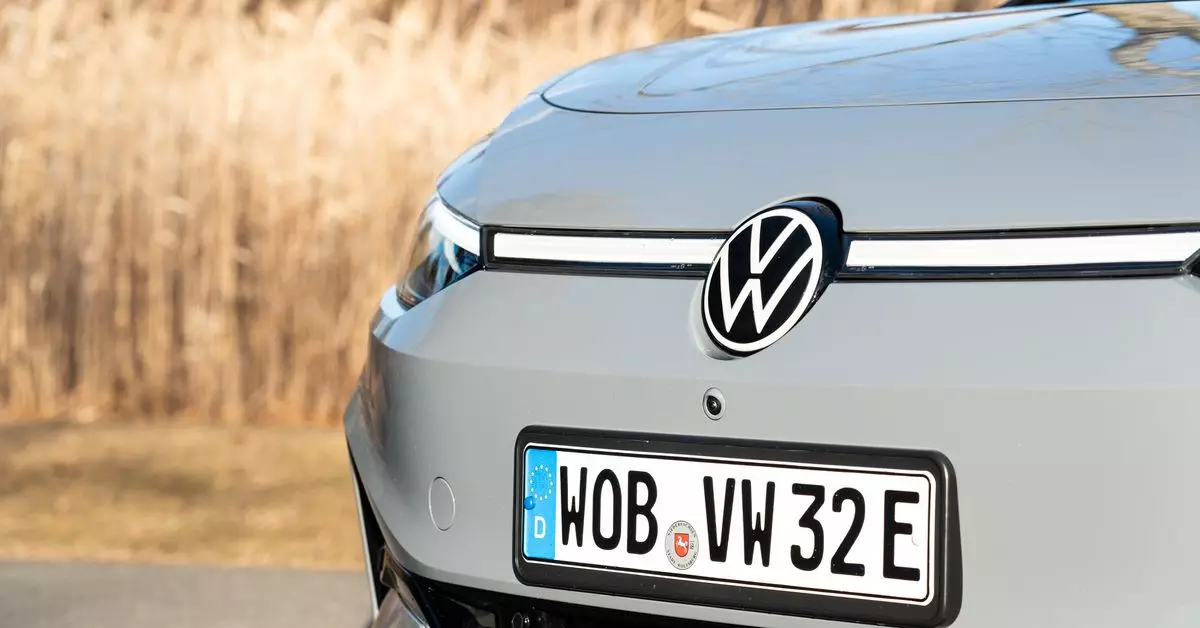In recent months, reports have surfaced regarding a significant data leak affecting around 800,000 electric vehicles produced by Volkswagen. This leak, originated from a notable security oversight within Volkswagen’s software, raises serious concerns about consumer privacy and the protection of sensitive data. As our reliance on technology and smart vehicles increases, the implications of such vulnerabilities become ever more pressing, and this incident serves as a stark reminder of the potential threats faced by consumers in the digital age.
The data was exposed due to a flaw in the software managed by Cariad, a subsidiary of Volkswagen responsible for developing software solutions for the automaker. The extent of the breach is concerning, as it could allow malicious entities to accurately track a vehicle’s movements and possibly gain access to private information about the driver.
This incident was first brought to light by whistleblowers who alerted both the German news magazine Der Spiegel and the Chaos Computer Club, a European hacking association. Their efforts underscore the critical role that transparency plays in safeguarding consumer data, particularly in industries transitioning to electric vehicles. As companies like Volkswagen embrace technological advancements, they must also prioritize cybersecurity measures to protect their users.
The leak not only affects Volkswagen, but also its subsidiary brands, including Audi, Seat, and Skoda. This broader impact means numerous drivers are at risk, raising questions about how collaborative efforts can enhance overall security protocols across multiple platforms. The interconnected nature of modern software systems amplifies the urgency for the automotive industry to bolster its defenses.
The leaked data is more than just a collection of vehicle locations; it encompassed a range of sensitive information that could potentially be linked to individual drivers. Reports indicate that information such as names, contact details, and even specific usage patterns—such as when vehicles were switched on or off—were included in the breach. This level of detail poses not only a privacy risk but also a significant threat to personal safety; the potential for tracking drivers’ movements precisely down to ten centimeters is particularly alarming.
The very existence of such detailed data in a compromised state emphasizes the pressing need for robust data protection strategies. As electric vehicles grow in popularity, manufacturers must recognize their responsibility to safeguard user data against both internal and external threats. Failure to do so could lead to reputational damage and legal ramifications.
Volkswagen’s situation serves as a cautionary tale regarding the balance between innovation and security in the automotive industry. As companies rush to integrate more sophisticated technologies into their vehicles, the importance of conducting thorough security assessments cannot be overstated. Stakeholders—manufacturers, consumers, and regulators alike—must collaboratively pursue solutions to combat these vulnerabilities.
The Volkswagen data leak illustrates a critical gap in the security practices of automotive technology providers. It highlights the need for heightened diligence regarding consumer privacy, urging manufacturers to prioritize effective data protection as they progress into the future of mobility. In an era increasingly defined by the intersections of technology and daily life, safeguarding the fundamental rights of individuals should be paramount.


Leave a Reply